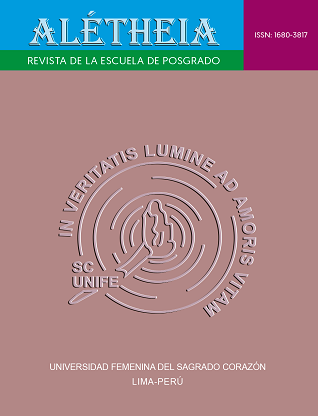Analysis of management ín education and guideline competences for education development
DOI:
https://doi.org/10.33539/aletheia.2015.n3.1217Keywords:
management, educational management, administration, management skills and management competencies.Abstract
The present research includes a descriptive analysis of the meaning of management in education,in the context of the existing regulations andguidelines for
school headteachets in Peru. The analysis carried out is contrasted with management theories and modern concepts in this field.
As a tesult of this analysis, it is evidenced that school authorities should develop competencies to assume imanagetial positions. In addition, several other transversal competencies are suggested, considering the disruptive changes caused byglobalization for management, and the fact that educational organizations are unable to avoid such changes. lan addition, reflection enables a clear view of the managerial responsibilities that schoo! authorities should undertake in the future to “manage” schools.
This research has used existing normative sources from the Ministry of Education (MINEDO), such as informative and normative documents issued at this Ministry and used for school authority training, as well as specialized bibliographical sources on organizational management, leading to a mote objective appreciation for reflecting on this issue.





